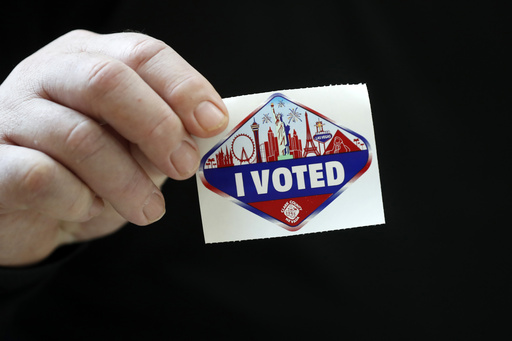
“`html
LAS VEGAS — More than 30 years have elapsed since Nevada voters decisively backed a law allowing abortions until the 24th week of pregnancy. Now, residents face the question of whether to enshrine this right in the state constitution.
Nevada stands among nine states with abortion rights issues on the upcoming ballot, as advocates strive to fortify access to abortion services following the Supreme Court’s recent decision that overturned Roe v. Wade, a significant ruling that had guaranteed legal abortion across the U.S. for five decades.
This subject holds considerable weight in the upcoming election, potentially mobilizing voters in Nevada, a vital battleground state, even though abortion access has been safeguarded by state law since 1990.
Here is a detailed overview of the prominent ballot initiatives in Nevada:
Abortion Rights
The forthcoming 2024 election will serve as the initial assessment of the initiative aimed at establishing the right to abortion until the period known as “fetal viability,” typically considered after 21 weeks, with allowances for situations where the mother’s life or health is endangered. For the amendment to alter the state constitution, voters will need to endorse it again in 2026.
This measure does not aim to broaden existing abortion access within the state, yet proponents argue it provides added security. Current laws in Nevada are susceptible to modification; for instance, the statutes from 1990 could be repealed through another voter referendum. On the other hand, proposed amendments to the constitution necessitate approval in two successive elections, making them more stable against sudden shifts.
Laura Campbell, a 36-year-old resident of Las Vegas, supports this initiative to bolster abortion rights in Nevada, sharing a personal testimony about how, without such protections, her life might have turned out tragically different. When she was 27 weeks pregnant, she discovered that her pregnancy was nonviable, meaning the fetus could not survive outside the womb. Her doctor assured her of proper care during that overwhelming time.
“I was able to come out of that healthy and able to get pregnant again,” Campbell reflected. A year later, she welcomed her daughter, now aged three, expressing gratitude that her experience did not become a devastating narrative.
Conversely, opponents argue that the proposed amendment lacks a clear definition for “fetal viability.” According to Davida Rochelle, 68, it introduces significant uncertainty. Anti-abortion advocates, including Nevada Right to Life, have criticized the initiative as “deceptively worded,” claiming it fails to clarify that abortion is already legalized in the state.
Voting Process
There are two additional measures that could transform voting procedures for Nevada residents. One initiative proposes to open primaries and adopt ranked-choice voting, which would significantly alter the electoral process in this swing state. Nonpartisan voters surpass both registered Democrats and Republicans, with about 42% lacking affiliation to either major party. Proponents contend that this reform would empower over a million voters who currently do not participate in selecting candidates for major party nominations for congressional and statewide positions.
If approved, the new system would allow all registered voters in Nevada to participate in primary elections for Congress, statewide positions, and the state legislature starting in 2026, excluding presidential primaries and local offices.
In this proposed system, the leading five candidates from the primaries, regardless of their political affiliation, would qualify for the general election, where voters can rank up to five candidates by preference. The candidate who secures over 50% of the votes would then be deemed the winner.
If no candidate achieves a majority right away, the one with the lowest number of votes would be removed from contention, with their votes redistributed to the subsequent preferred candidate indicated by the voters. This cycle would continue until a winner is determined.
Both Republican and Democratic leaders have opposed this citizen-led initiative, citing concerns that ranked-choice voting would create excessive confusion among voters. Additionally, another proposed measure on the ballot mandates that voters show photographic identification at polling places. This proposal, backed by the Republican party, is being presented to voters for the first time and must again pass in 2026 to be adopted.
Slavery as Punishment
Voters in Nevada will also have the opportunity to cast their ballots on whether to abolish slavery and indentured servitude as forms of criminal punishment, an archaic provision that still appears in the state constitution.
Currently, there are approximately 10,000 individuals incarcerated in Nevada, with some earning as little as 35 cents per hour for their labor. There appears to be no organized opposition to this proposed amendment aiming to eradicate slavery as punishment.
“`
